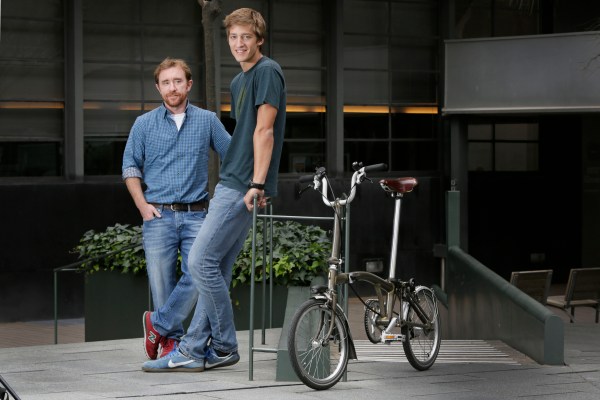There’s little doubt in my mind (and industry experts and VCs I talk to) that the local on-demand delivery space will soon get messy given the number of startups entering the space and the amount of venture being thrown at the opportunity. The latest to raise capital is Spain’s Glovo.
The Barcelona-based company, which in some ways can be compared to U.S.-based Postmates, has picked up €2 million in funding. Investors in the round include Zaryn Dentzel (Tuenti), Bernardo Hernandez (Idealista, Flickr, ex-Google, Fever), Felix Ruiz (JobandTalent, Tuenti), Antai Venture Builder, and Cube Investments.
Founded in January 2015, Glovo began taking orders in March. Like Jinn and Quiqup in the U.K. and yet-to-launch Stuart, the startup promises to get you anything you want from any shop or restaurant in your city and “get it to on your doorstep in less than an hour.”
“Our platform allows our users to buy or deliver almost anything in their city at the press of a button on their smartphone, the platform connects the order to the nearest available couriers and therefore optimizing distance and time,” Glovo co-founder Sacha Michaud tells TechCrunch.
So far this has seen a wide range of orders, including food from boutique restaurants that don’t offer delivery, high street department stores, late night pharmacies, and alcohol and cigarettes. “What is clear is that our customers really know exactly what they want and in most cases where we need to pick it up from,” says Michaud.
For the privilege, Glovo currently charges a flat delivery fee of €5.5 with no mark-up on the price of the product purchased. Couriers get between 70-80 per cent of that fee as well as any tips.
In the future, Michaud says the startup will be working with premium partners and charging them a commission of products purchased. It’s also built an API so that stores or e-commerce sites can plug their delivery needs directly into the platform.
“By using the resources that a city already has (citizens with free time), we have created a network of on-demand couriers that offer a solution for urban stores looking for a delivery service or for ecommerce sites that want to deliver in 60 minutes to their urban customers. Our goal is to create a hyperlocal marketplace with integrated immediate delivery,” he adds.
In terms of competitors, Michaud cites Postmates as a reference point, although the company still hasn’t launched in Europe, noting that Uber Rush, Amazon or even Google are also potential competitors.
“Our major difference we believe is we actually go out and buy exactly what you need from the restaurant or store you want, we want to be hyperlocal and by focusing on just that we think we will do it better,” says Michaud.
